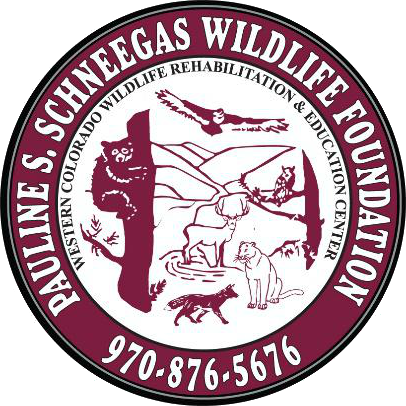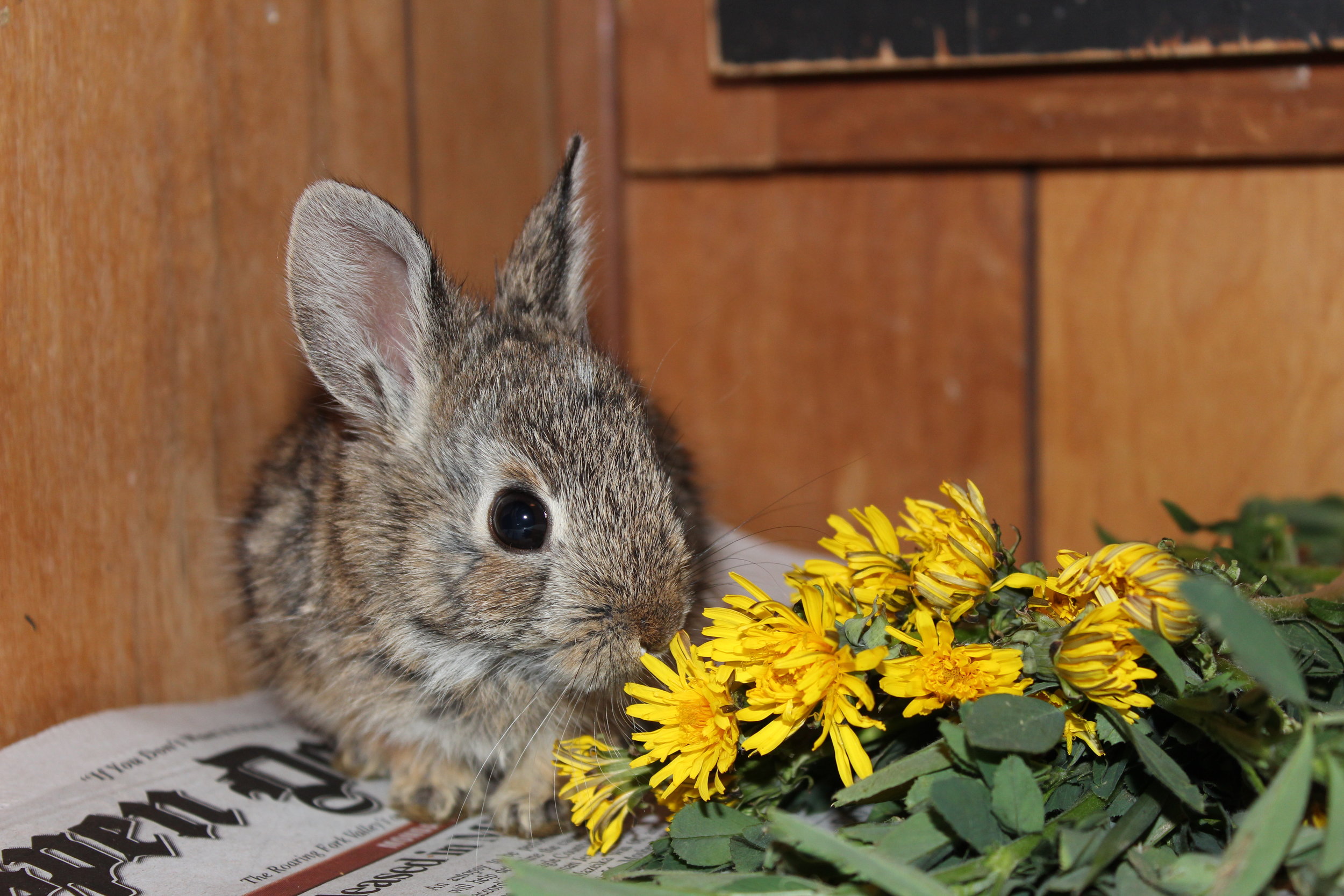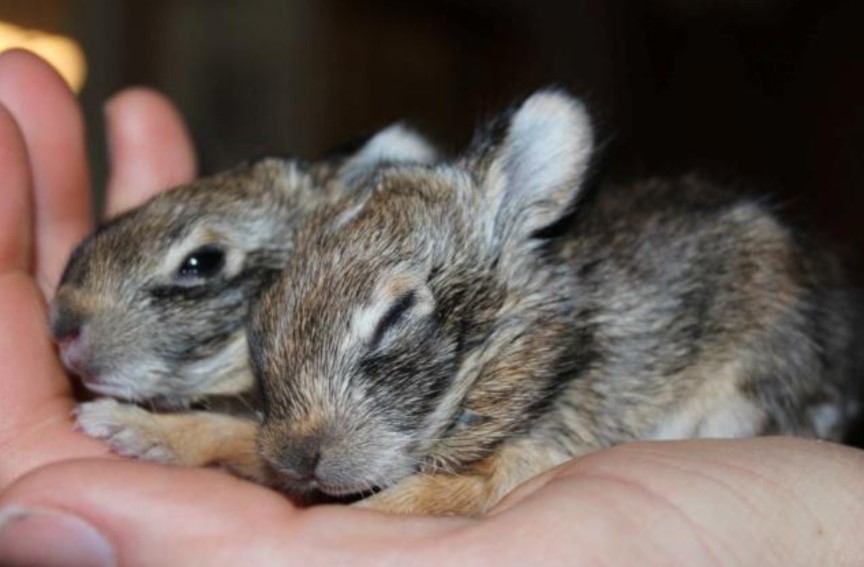I've found a baby rabbit...
what do I do?
Please consult with a licensed wildlife rehabilitator, Colorado Parks and Wildlife (CPW) officer, or animal control officer before intervening!
Under Colorado law, it is illegal to possess any species of wildlife without a license. This is where licensed rehabilitators like us come in! In addition to being licensed to take care of wildlife, we have the ability to provide injured and orphaned wildlife with the best nutrition, appropriate medical care, and are usually able to pair them with their own kind so they can thrive and learn proper behaviors for their species.
It is legal, however, for the general public to capture an injured wild animal and transport it to a willing veterinarian, CPW, or licensed rehabilitator.
PLEASE DO NOT FEED ANY WILDLIFE, ESPECIALLY BABIES, UNLESS A REHABILITATOR INSTRUCTS YOU TO DO SO. online sites will give you diets to feed various wildlife, and many of these are extremely harmful! FEEDING WITH IMPROPER METHODS OR INAPPROPRIATE FOODS CAN LEAD TO THE DEATH OF THE ANIMAL.
If you have fed an animal before bringing it to us, please let us know so we can take appropriate measures on intake.
Does this Bunny need rescue?
Baby rabbits grow rapidly and are independent very early in life. Mother rabbits usually only visit their nest a few times a day to let the babies nurse, so if you find a nest of babies alone, it does not mean that they are orphaned. It’s best to observe for a while before intervening - if possible, place a lightweight object (like grass, hay, tissue, etc.) in front of the mother’s entrance to the nest or put a thin layer of flour down. If the material is later moved out of the opening, or you see paw prints in the flour, the mother is most likely coming to care for her babies.
We still need help!
These baby bunnies have slick hair and their eyes are just beginning to open. If they are truly orphaned, they will need to be cared for by a rehabilitator.
Once their eyes have opened, most baby rabbits are eating solid foods and can take care of themselves (they will continue to return to the nest for warmth for a while). If they are safe from your pets, it’s best to leave them be.
We're Fine!
Though they are still small (about the size of a tennis ball), these baby rabbits are old enough to care for themselves. Their eyes are open, and they have fluffy hair. If found in the wild, it's best to leave them alone!
If the rabbit's nest is destroyed, or you know that the kits are orphaned, please contact your local wildlife rehabilitator for advice. Baby bunnies have very sensitive digestive systems, and are used to only eating twice a day. Because of this, it’s best not to feed them before you get them to your local rehabilitator. Keep them in a warm, dark place until you are able to get them to a licensed rehabilitator.
Help keep animals like baby rabbits safe by keeping your dogs on a leash and cats inside during baby season! Roaming dogs account for many rabbit deaths every spring, and cats kill more wildlife than any other animal!
USEFUL CONTACTS:
PSSWF
(970) 896-6895
psswildlifefoundation@gmail.com
Pitkin County Animal Control Dispatch
970-920-5300
CPW - Canyon Creek Office
(970)-947-2920
CPW - Grand Junction Office
(970) 255-6100
CPW - Meeker Office
(970) 878-6090
CPW - Hot Sulphur Springs Office
(970) 725-6200



